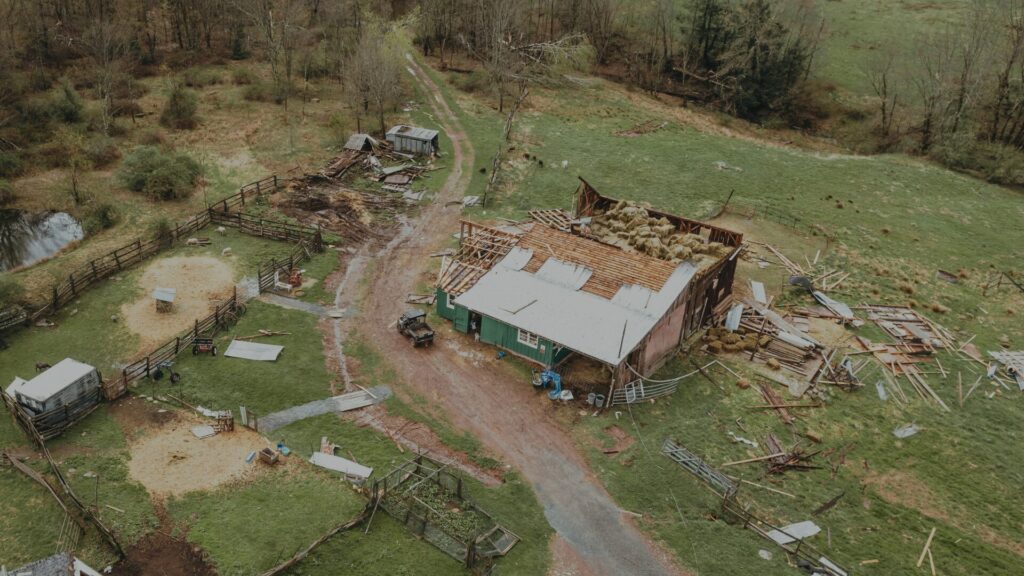What Happens if My Storm Damage Claim is Denied?
After a Texas hurricane or another severe weather event, if your homeowners insurance company disputes your property damage claim or refuses to pay the claim in full, schedule a consultation immediately to discuss your rights as a policyholder with a Texas storm damage lawyer.
It is not unusual for hurricanes, tornadoes, and other severe weather events to strike the State of Texas, and when severe weather happens, Texans are frequently displaced from their homes. In 2017, Hurricane Harvey displaced more than 30,000 people after making landfall along the Gulf Coast of Texas. High winds may destroy homes, and heavy flooding can be equally destructive.
While most homeowners know that their insurance will cover property damages, many policyholders don’t know that their insurance may also cover the cost of temporarily living somewhere else while their homes are being repaired or rebuilt.
While your homeowner’s policy may cover the cost of temporary housing after a severe weather event, if your insurance company refuses to pay you for that cost, you may have to take legal action against the company – with help from a Texas storm damage attorney.
What Relocation Costs May Be Covered?
If you’ve been displaced recently by a severe weather event, or if you are preparing for future events, you should check your homeowners policy to see if it covers relocation expenses. If you have to relocate, save your receipts and any other documents related to your relocation costs.

Knowing exactly what coverage your homeowners policy provides is an important part of preparing for a severe weather event. Some homeowners policies in Texas may provide extensive coverage for temporary relocation and temporary housing costs, including the cost of:
- transportation
- rent or hotel costs
- utility deposits
- security for your property while you’re away
- boarding your pet
When Can You File a Claim for Relocation Costs?
The precise details of temporary relocation coverage vary depending on the insurance company and the terms of your homeowners policy, but generally speaking, if you have temporary relocation coverage, you may submit a temporary relocation claim if:
- Your home becomes unlivable after severe weather, a lightning strike, fire, or explosion.
- High winds knocked over a tree that crushed your roof.
- You were required to relocate temporarily due to a mandatory evacuation order.
- A vehicle crashed into your home.
Do You Require Additional Coverage?
Many Texans do not have the full homeowners coverage they need. Flood coverage usually is not included in a Texas homeowners policy and usually must be purchased separately. In high-risk coastal areas of Texas, a standard homeowners policy also excludes hail and wind damage. In these areas, coverage for hail and wind damage also must be purchased separately.
If severe weather or some other emergency forces you to evacuate your home, contact your homeowners insurance company as quickly as possible. They will explain what temporary relocation expenses your policy covers and how to file a claim for temporary relocation costs.
Your homeowners policy may set limits on how much you may spend on hotel rooms, a rental apartment, and transportation, and your insurance company will need copies of the receipts that document your expenses. Make several copies of those receipts and store the originals securely.
What if Your Temporary Relocation Claim is Denied?
If you do not have temporary relocation coverage, get it right away. Severe weather can strike in Texas at any time with little or no warning. But even if you have temporary relocation coverage, your temporary relocation claim could be denied or disputed by your homeowners insurance company.
Particularly after a severe weather event, underpaying claims and avoiding payouts is the way some insurance companies reduce their losses. If the company – intentionally or negligently – fails to meet its obligation to you, promptly arrange to speak with a Texas storm damage lawyer.

If the company ignores your calls, makes excuses, or otherwise mishandles your temporary relocation claim or your property damage claim, your lawyer will explain your rights, investigate both your claim and the insurance company, and recommend the best way to move forward.
How Will A Storm Damage Attorney Help You?
If you have temporary relocation coverage and your temporary relocation claim is denied or mishandled, in most cases, your attorney will contact the insurance company and negotiate on your behalf with the company for a fair and reasonable settlement agreement.
If your insurance company continues to deny your temporary relocation claim – or your property damage claim – or fails to make a reasonable settlement offer during the out-of-court negotiations, your Texas storm damage attorney will take your case to court.
If a trial determines that your insurance company acted negligently or operated in bad faith, the court will order that company to pay your original claim, and in some cases, the court will also order your insurance company to pay your attorney’s fee and other related losses and damages.
When Should You Contact an Attorney?
If you’re still struggling with an insurance company months after a severe weather event, schedule a free case evaluation now with a storm damage lawyer who will fight aggressively and effectively for the justice you need and the payout you rightly deserve.

Under Texas law, you have two years from the date that your property damage or temporary relocation claim was rejected to initiate legal action, but do not wait two years before speaking with an attorney. Schedule a case evaluation as soon as you realize that you need legal help.
How Should You Choose a Storm Damage Lawyer?
The storm damage lawyers at Flores & Pelaez-Prada routinely prevail against the insurance companies and on behalf of Texas homeowners. With offices in McAllen and San Antonio, we work for homeowners throughout the state.
Flores & Pelaez-Prada offers personalized legal advice regarding homeowners policies, property damage claims, and relocation claims. We explain how the law applies to your own case, and we will protect your rights and fight for the justice you need if your claim is mishandled or denied.
Flores & Pelaez-Prada represent Texas homeowners on a contingent fee basis. You’ll pay us no attorney’s fee until and unless we prevail on your behalf and recover the compensation you need. If for any reason you are not compensated at the end of the legal process, you’ll owe us no fee.
Learn more by scheduling a no-obligation, no-cost case evaluation. Call Flores & Pelaez-Prada at 877-890-6372. Our focus is helping homeowners in Texas resolve insurance conflicts, and we are ready and prepared to work for you.
Disclaimer: The blog posts shared on stormlex.com are intended for general informational purposes and may not apply to your specific situation. For personalized legal advice concerning your policy or claim, contact our office directly at 877-890-6372.
















